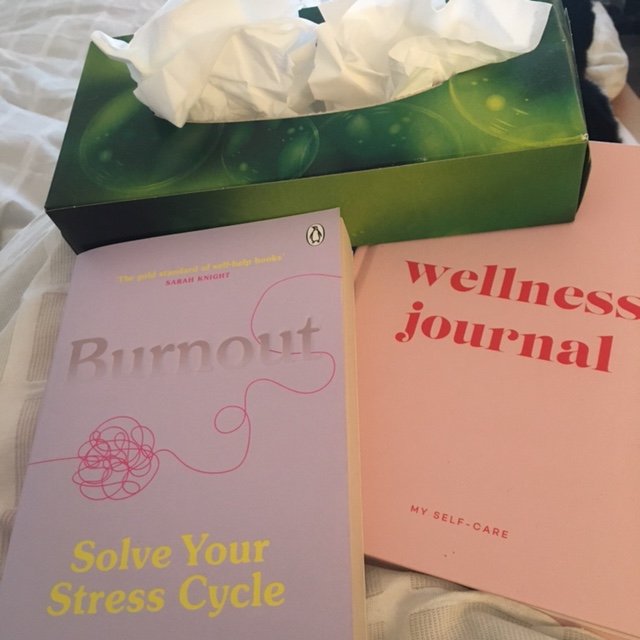How to build better relationships at work
Good relationships are fundamental to our happiness, and work relationships are no different. We don’t just check our emotional needs in at the office door every morning. They come in with us, and feeling connected to a close network of colleagues can make a big difference to our happiness at work.
For example, when we have a community of people at work that we can count on, we are able to bounce back from setbacks faster, accomplish more and feel a greater sense of purpose and meaning in what we do.
Those positive interactions we have during the workday help us cope better with work-related stress and recover faster. And you’re also less likely to see challenging situations as stressful in the first place, and more able to see adversity as an opportunity for learning and growth
For his book Good to Great, Jim Collins spent five years researching what makes the difference between a ‘good’ or a ‘great’ organisation and found that the people we interviewed from good to great companies, clearly loved what they did largely because they loved who they did it with.
So it would seem that great people often achieve great things because they are part of a great team. For example:
Thomas Edison may have got the credit for inventing the lightbulb, but he did it with the help of 30 lab assistants.
Neil Armstrong may have been the first person to walk on the moon, but it took a team of 400,000 scientists, engineers and technicians to actually get him there.
The sound of The Beatles would never have been what it was without the combination of John Lennon, Paul McCartney, George Harrison and Ringo Star playing together.
How can I improve my relationships with my colleagues?
You might think you have no control over who you’re surrounded by at work, but that’s not necessarily true. What you can do is change the balance of who you spend the most time with and how you spend it with them. Now that many of us are returning to the office at least part-time, this might be a great opportunity to think about how you want to interact with your colleagues going forward.
For example, you can make some simple changes such as choosing to spend more face to face time with colleagues you like on the days that you're in the office. This could be in the form of in-person meetings, or walking over to their desk when you need to speak to them, or arranging to have lunch together. Whereas with those colleagues you don’t get on so well with, you could choose to communicate more often by Zoom meeting or by email.
Of course, it’s unlikely that you can completely avoid having to work alongside colleagues you don’t gel with, but you can probably change the balance of time you spend with them face to face. These might seem like small changes but they could end up having a big effect on your interactions at work.
How can improve my relationships with my team if I'm a team leader or manager?
According to psychologist and science journalist Daniel Goleman, the most important single relationship at work you’ll have is with your boss. He calls it “a vertical couple” and says that the strength of this bond is the main predictor of daily productivity and how long someone will stay in their job
He also talks about a Gallup study that was conducted over the course of 70 years and was completed in 2009, which showed that US companies lost $360bn each year due to lost productivity because of poor manager/employee relationships
It’s really important to be aware of how our moods do affect others. Our emotions are in fact contagious up to two or three people away from us, and it takes just two minutes for one team member to pick up on the mood of another. So your mood could be impacting someone you work with, and in turn, that could impact their partner when they get home.
This reinforces the importance of working on your own happiness, because that can have a positive impact on the happiness of others too. You can choose what you want to put out in the world
So as a leader or manager, it is in your hands to affect the mood of a whole team in a positive way if you want to. And this can be done in a way that doesn’t have to be forced or feel fake. You don’t have to become best friends with your team, but this is about creating a basis is for mutual respect and for everyone to feel that they can be themselves and be authentic at work.
Here are some suggestions to get started:
Have more face to face meetings where possible.
Don’t multitask when someone speaks to or calls you.
Give them your full attention.
Make eye contact.
Use active listening.
Be curious and ask questions.
Give praise or say thank you to a colleague or team member.
These action steps may sound very simple, but they all help to build trust and send ripples of positivity through the workplace, and onwards to our wider families and communities too.
My top tips for people who hate networking
Are you someone who dreads networking? Is it something you feel like you SHOULD be doing to make progress in your career or your business?
Well there is valid data to back up why we should be doing it more often, as this LinkedIn survey found that 70% of respondents got hired at a company where they had an existing connection, and 35% said that a casual conversion on LinkedIn led to a new opportunity.
Networking can feel daunting but ultimately it’s just about talking to people we like and making genuine connections, and we can all do that right?
So here are some ways that you can network in a way that feels authentic and enjoyable, but will also get you results:
1. Firstly remember that not all networking looks alike. It might be a workshop or conference where you learn something new and then chat to other participants in the breaks. It might be a lunch or coffee with someone who you have mutual connections with. It might take the form of an online Facebook or LinkedIn group that you contribute to a couple of times a week. Choose a format that you feel most comfortable with and go from there.
2. If you spot an event that you’d like to attend but feel intimidated because you won’t know anyone, then why not bring a friend? There’s no rule to say you have to do this alone. If you have a friend or colleague who already knows people at the event and can make introductions then great. But also if they’re a great wing woman (or man) who will encourage you, then by all means just take them along for moral support. However it’s important that you don’t don’t end up hiding in corner together and gossiping to each other all night as that kind of defeats the point!
3. If you’re going alone then make yourself accountable and set yourself a time limit. This has worked well for me when I’ve been going to an event and felt really nervous. Firstly I pre-book my ticket if it’s a paid event, tell someone else that I’m going and ask them to hold me accountable. Secondly I tell myself I’ll go for 20mins and speak to one person, then if I’ve managed that then I’ll allow myself to go home if I really need to. Of course once I’m there, I usually end having a great time and chatting to some lovely people, but those little tricks help to calm my panicky brain and get me in the door in the first place.
4. If you’re an introvert and think that’s make you less good at networking then think again. Introverts are good listeners and often deeper thinkers, so that makes you great at asking the right questions and building meaningful connections. No-one likes those people at networking events who just want to pitch you, hand over their business card and then move on. Ugh.
5. Play the long game. Relationships can take time to evolve and deepen, and it’s no different with networking. Don’t be one sided or pushy. Be curious about the other person, be present with them (no scanning the room mid-conversation!) and offer to help them if you can. It all contributes to your networking karma.
6. At the same time, be focused and know what you eventually want to get out of it. Whether you’re attending an event or arranging a coffee with a contact, have an objective. Do you want to learn more about a potential role? Ask for an introduction to a particular person or company? Meet potential clients? Knowing your ‘ask’ will give you focus and stop you wasting time and energy on the wrong activities or events.
7. Follow up. Met someone interesting where there was collaboration potential? Don’t be afraid to ask for their business card or how you can find them online. You can follow their social media accounts afterwards and interact with their content to keep the relationship warm, or if you want to chat further then send them a friendly message and invite them to a quick coffee or Skype chat if they’re open to it. Don’t worry too much if they say no, they might be too busy at that moment in time but still be open to staying in touch in the future.
So there you have it. You never know who you might meet and how they could impact your career and your life. And at the very least, you will have got to meet interesting new people and probably got some free snacks out of it. What’s not to love?!
Now I’d love to hear what’s worked for you. Where have your best work connections come from? Have you tried some unusual routes? How do you get over your pre-event nerves? Share in the comments below!












